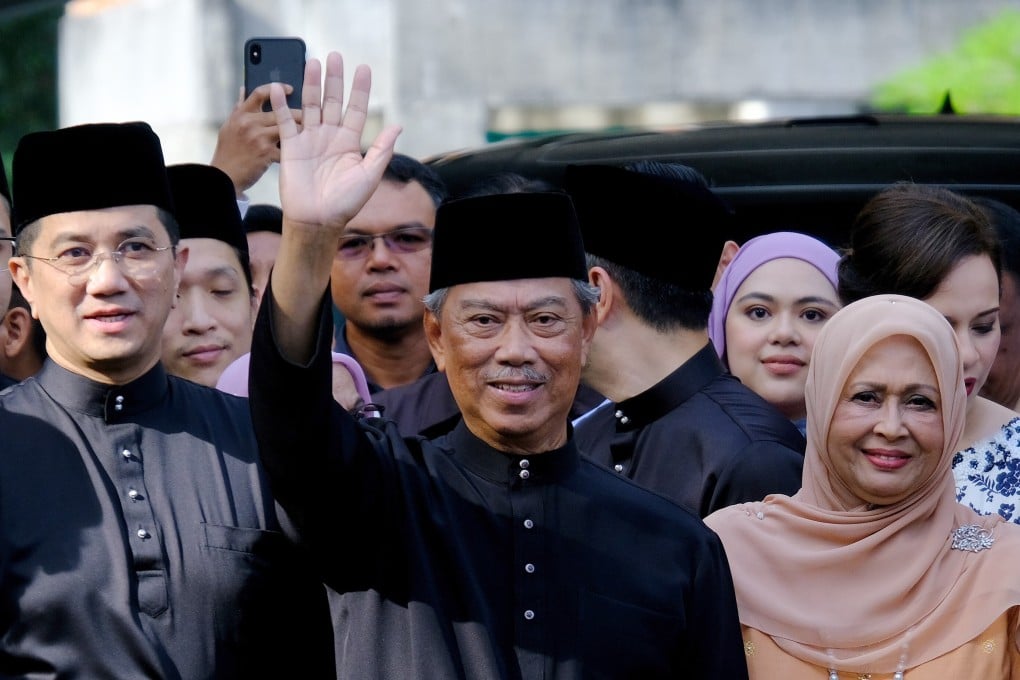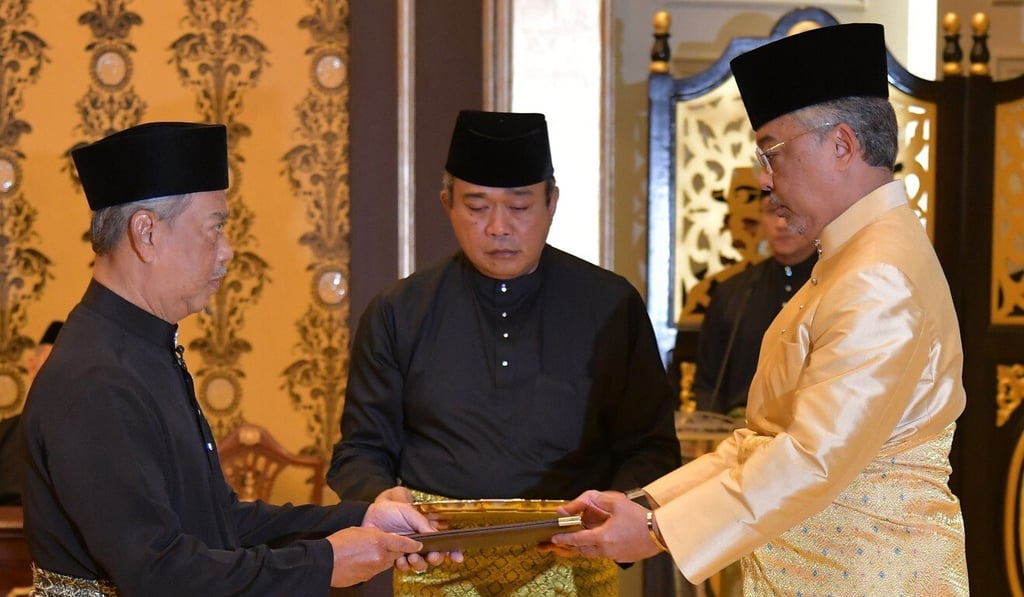Muhyiddin Yassin as Malaysia’s new PM sparks fears of return to ‘Umno politics’
- Muhyiddin, 72, was picked by the country’s king to take office a week after Mahathir unexpectedly resigned as prime minister
- Mahathir says the new leader doesn’t have majority support in parliament while Malaysians worry about the future of political reform and race relations

After a week of political chaos, Malaysia on Sunday swore in its eighth prime minister – Malay nationalist politician Muhyiddin Yassin – only to face immediate resistance from the former ruling coalition now forced into the opposition, who argued the appointment was against the rule of law.
Muhyiddin, 72, the previous home affairs minister, was picked by the country’s king to replace ex-premier Mahathir Mohamad, whose shock resignation came amid claims of political skulduggery that tore apart an administration that had only been in power for 21 months.
Scores of Malaysians took to the streets on Saturday and Sunday to protest Muhyiddin’s appointment while police arrested a man for insulting the king on Facebook – an offence under the nation’s colonial-era sedition laws – following the monarch’s political intervention.
Three others are being investigated under similar allegations.

On social media, Malaysians expressed fear that Muhyiddin’s leadership – he has espoused staunch pro-Malay values – would lead to worsening ties between the nation’s Malay-Muslim majority and other groups.